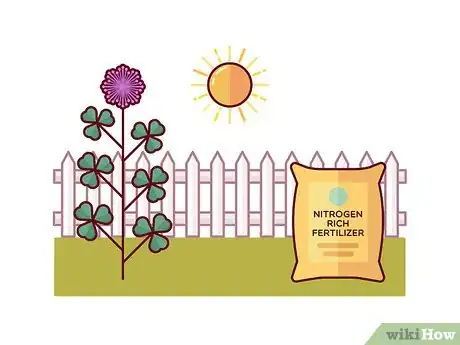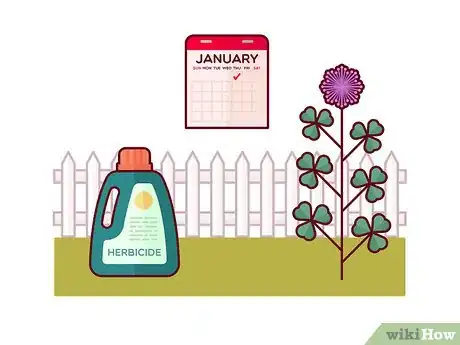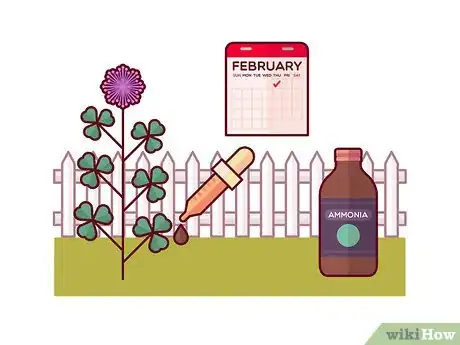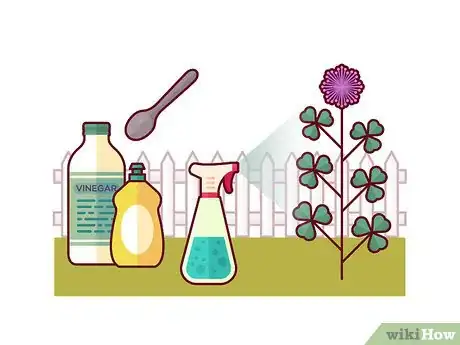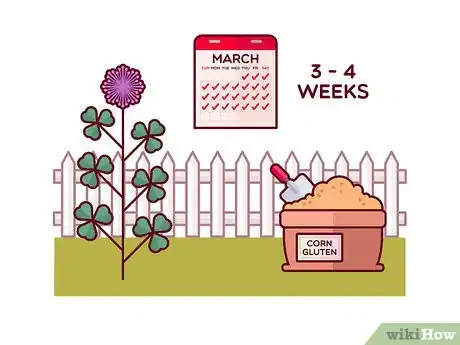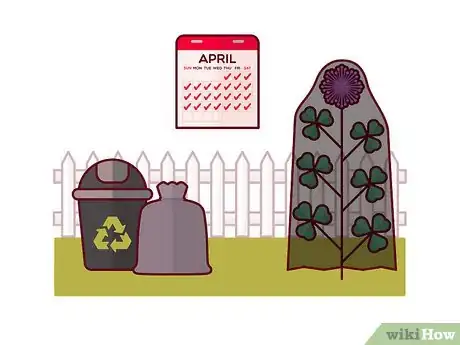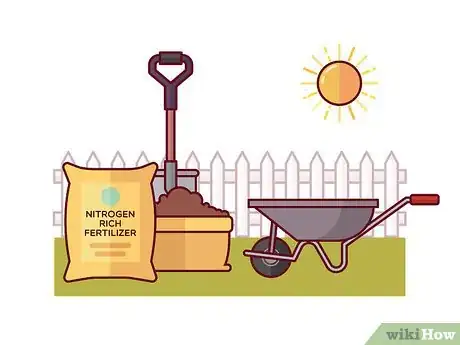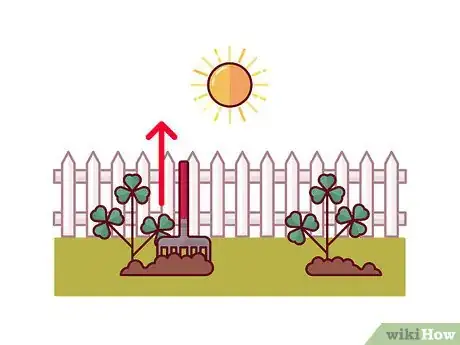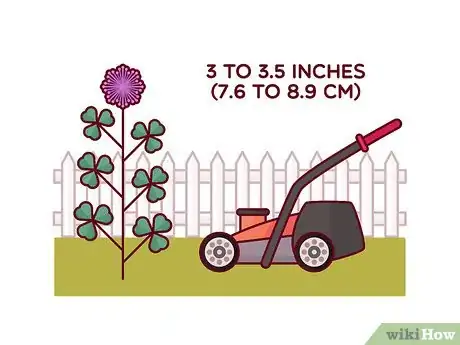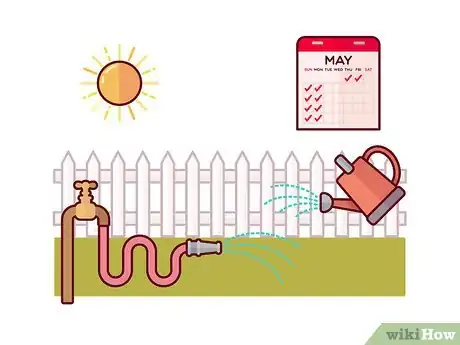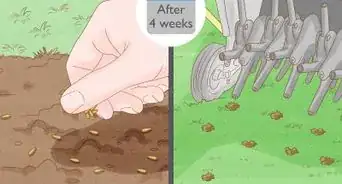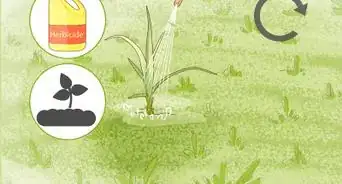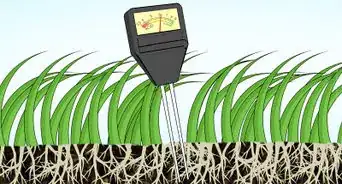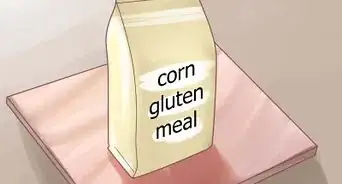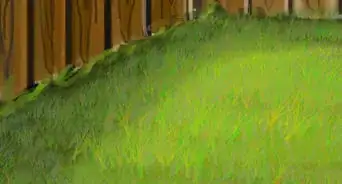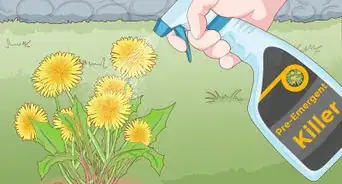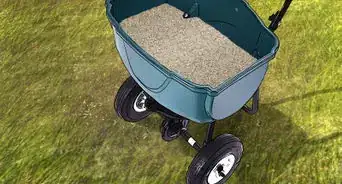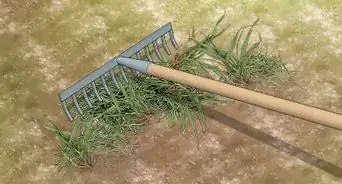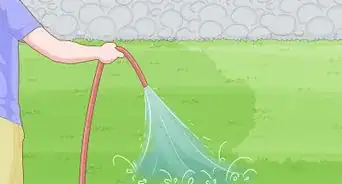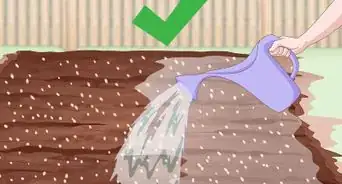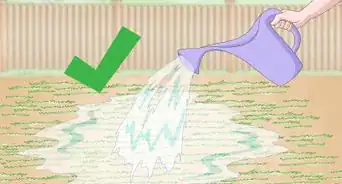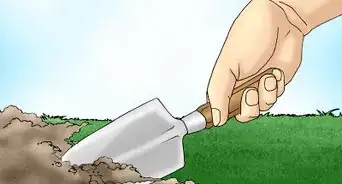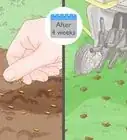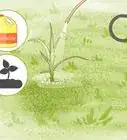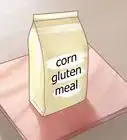This article was co-authored by Lauren Kurtz. Lauren Kurtz is a Naturalist and Horticultural Specialist. Lauren has worked for Aurora, Colorado managing the Water-Wise Garden at Aurora Municipal Center for the Water Conservation Department. She earned a BA in Environmental and Sustainability Studies from Western Michigan University in 2014.
This article has been viewed 76,979 times.
Clover is a common weed that takes over lawns that have not been maintained or are malnourished. Though clover is harmless for your yard, some people prefer to get rid of it and maintain a grass-only lawn. To get rid of clover, apply commercial products or natural remedies to your lawn. You can also keep clover from coming back by maintaining your lawn so stays healthy and well groomed.
Steps
Using Commercial Products
-
1Apply a nitrogen-rich fertilizer. Clover does not do well in a nitrogen-rich environment, so a nitrogen fertilizer will kill this weed. Look for a fertilizer with a high nitrogen content at your local hardware store or online. Spray the fertilizer directly on the clover, following the instructions on the label.[1]
- Go for an organic, slow release fertilizer if you only have small patches of clover in your lawn.
- If you have large patches or sections of clover, opt for a fertilizer that is quick release to get rid of this weed right away.
- You can apply the fertilizer once a month, or based on the instructions on the label. Applying the fertilizer every spring is also a good preventative measure to stop clover from growing.
-
2Spot treat the clover with a herbicide. Look for herbicide that contains 4-Dichlorophenoxyacetic acid and Dicamba, as they will stop the clover from growing and kill them. Apply the herbicide directly to the clover. Make sure the herbicide does not get on any other plants.[2]
- Put the herbicide on the clover once a month, or until it dies.
- You can buy herbicide at your local hardware store or online.
Advertisement -
3Use ammonia on the clover to burn it. Ammonia will scorch and kill the clover. Only apply sulphate of ammonia made for use on lawns when the soil is moist after a rainy day. You can also wet the lawn with a hose before applying the ammonia if you don't want to wait for a rainy day. Put the ammonia directly on the clover so you do not scorch other areas of your lawn.[3]
- Apply the ammonia once a month, or until the clover dies.
- Buy ammonia for lawn care at your local hardware store or online.
Applying Natural Remedies
-
1Spray the clover with a vinegar and soap mixture. Put 1 tablespoon (15 ml) white vinegar in a spray bottle with 1 tablespoon (15 ml) of dish soap and 3⁄4 cup (180 ml) of water. Spray the clover with the mixture as a spot treatment to kill it.[4]
- Avoid spraying the mixture on any surrounding plants or grass, as it can damage them.
-
2Use corn gluten on the clover. Corn gluten is a natural herbicide that can be used to kill clover. Look for powdered corn gluten that you can sprinkle onto the clover. Use 20 pounds (9.1 kg) of corn gluten per 1,000 square feet (93 m2) of lawn.[5]
- Water the corn gluten once you’ve applied it and then let the area dry for 2-3 days so the gluten can kill the clover.
- You can apply the corn gluten again after 4-6 weeks if the clover does not die.
-
3Place a plastic sheet over the clover to kill it. Put a garbage bag or a plastic tarp over the clover and secure the ends with rocks. Leave it on for a few weeks so the clover is deprived of sunlight and oxygen. Make sure the clover stays covered by the tarp at all times so it dies.[6]
- This option is good if you have large patches of clover in your lawn that can be covered easily by a large plastic sheet or tarp.
Maintaining a Clover-Free Lawn
-
1Fertilize your lawn in the spring to keep clover away. Use a nitrogen-rich fertilizer on your lawn to maintain it and prevent weeds like clover from growing. Fertilizing your lawn once a year in the spring can also help to keep the grass healthy and less prone to weeds and pests.[7]
-
2Pull out small patches of clover with a hand fork to prevent it from spreading. If you notice any small patches of clover growing in your lawn, use a hand fork to dig out them out. Make sure you remove the roots of the clover from the soil so it cannot grow back.[8]
-
3Mow your lawn at a high setting so your grass outgrows the clover. Set your mower to a height of 3 to 3.5 inches (7.6 to 8.9 cm) so the grass is not cut too short. Your mower should go no lower than 1 to 1.5 inches (2.5 to 3.8 cm) when you mow your lawn. Keeping the grass tall can help to block out sunlight that can feed clover and other weeds, preventing them from growing.[9]
-
4Water your lawn 1-2 times a week to prevent clover growth. Make sure your lawn stays moist and well hydrated so weeds like clover don’t grow. Give your lawn at least 1 inch (2.5 cm) of water 1-2 times a week in the early morning so it stays healthy. A dry lawn will be starved for nutrients and be too unhealthy to fight off weeds like clover.[10]
References
- ↑ https://www.bobvila.com/articles/how-to-get-rid-of-clover/#.Wjmo6VQ-eRs
- ↑ http://extension.uga.edu/publications/detail.html?number=B1251#Management
- ↑ https://www.rhs.org.uk/advice/profile?PID=357
- ↑ https://www.bobvila.com/articles/how-to-get-rid-of-clover/#.Wjmo6VQ-eRs
- ↑ http://www.american-lawns.com/lawns/corn_gluten_meal.html
- ↑ https://www.bobvila.com/articles/how-to-get-rid-of-clover/#.Wjmo6VQ-eRs
- ↑ https://www.beyondpesticides.org/assets/media/documents/pesticidefreelawns/resources/Read%20Your%20Weeds-Organic%20Lawns.pdf
- ↑ https://www.beyondpesticides.org/assets/media/documents/pesticidefreelawns/resources/Read%20Your%20Weeds-Organic%20Lawns.pdf
- ↑ https://www.beyondpesticides.org/assets/media/documents/pesticidefreelawns/resources/Read%20Your%20Weeds-Organic%20Lawns.pdf
About This Article
To kill clover, mix equal parts water and white vinegar and a drop of dish soap in a spray bottle, and spray it on the clover at least once a day for 1-2 weeks. For a small patch of clover, just loosen the soil with a spade and pull the clover out by hand, roots and all. Spreading a nitrogen-rich fertilizer over your lawn every 1-2 months will also prevent clover from growing. Remember to mow your lawn regularly too. Clover grows best in tall grass, so keeping your lawn mowed will help control the problem. For stubborn clover patches, you can apply a broadleaf herbicide, which won't kill the surrounding grass. For tips on how to prevent clover from growing on your lawn, keep reading!
